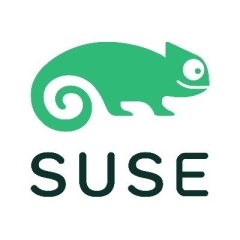What is our primary use case?
It's like an operating system, and then on top of this operating system, I install the Mitel application.
What is most valuable?
The most valuable feature of the solution is the installation part. The process is carried out through a download from Mitel's support site. It more or less preconfigures the system.
What needs improvement?
Mitel offers a specific version of SUSE Linux Enterprise, and whenever they make improvements to the operating system to better align with their application, I download it for distribution. Then, I work with what I have. But, anyways, it's okay to learn more since it helps me with my laboratory work.
I don't like the frequency of updates, especially if they're only from the vendor. However, in today's world, numerous threats need to be addressed. So, I believe that security upgrades should be implemented quickly, including the deployment process. If the software is stable and I know that there are new features to be added or configuration changes needed to be made, I'd rather not have to make changes too often.
For how long have I used the solution?
I have been working with SUSE Linux Enterprise Server for around four to five years now. I work as an integrator for voice systems. The version I am utilizing is tailored for voice systems and can also be utilized as a platform.
What do I think about the stability of the solution?
It is a stable solution since it is great to configure. We don't face any issues related to the operating system or application. There are some difficulties sometimes because we need to interconnect different types of devices from different vendors.
What do I think about the scalability of the solution?
The scalability of the solution depends on the customers, who are the ones paying for it. In Romania, it is not easy for customers to choose cloud services because they question where my equipment is, and they also want to know whether it is safe to enter certain information. The customers also wish to know who knows how to operate the device and which security configuration should be deployed since there are concerns about the safety of their data. Despite our efforts to provide clarification, explaining these issues to customers is difficult.
In my company, I don't use it because my company is very small. But I work as an integrator with my customers.
How are customer service and support?
I had a very fine experience with the tech support team, and I found almost all the valuable information on the Mitel site.
Which solution did I use previously and why did I switch?
I work with VMware and Hyper-V from Microsoft in my laboratory for testing purposes. I don't work with other teams or companies. Recently, I installed VMware ESXi.
I have used Microsoft Exchange, Microsoft System Center - Operations Manager, Microsoft Project, Team Foundation Server, IIS, and Windows Server, but not on an operational team. So, I know about these tools, but I don't work with them on a day-to-day basis. My experience is in voice devices like Mitel. I have experience with all the imported applications. However, I am currently working on configuring virtualization and virtual machines for a customer, a task that requires the use of these tools.
How was the initial setup?
The setup process isn't too difficult and is the same for all operating systems, especially with Linux, regardless of the distribution. However, if I need to perform specific tasks, such as adding external devices like a network adapter, then finding the correct driver can be challenging. It's tough to answer how long the deployment process takes since it depends on the type of device being used. If all the required drivers are available in the distribution or for all interfaces, then the installation is quick and easy.
In the deployment process, the first step is to install VirtualPBX and the necessary applications for voice configuration, such as conference and phone. After that, it's important to connect the device and establish a virtual connection. However, I needed to consult with the developer and IT department to determine the type of network redundancy or software redundancy required. Then, I try to understand and learn the configurations of VMware or Hyper-V.
Most of the time, integration becomes easy when you put all the information on the table and collaborate with other teams and departments, such as the IT department. From their end, they provide a guide on the exchange along with the provider. If everything is taken into account, then it becomes easier.
What about the implementation team?
Although I can install the system on my own, when I visit the customer's site, I often require additional support from their IT department. This is because I cannot make some modifications to their equipment, such as switches and phones.
What's my experience with pricing, setup cost, and licensing?
The license comes directly from Mitel since it is personalized distribution, and everything depends on that particular distribution. Regarding pricing, everybody would want it to be cheaper. It's not just one person who is working on the solution. So, there are a lot of people who work for that particular software to maintain its high level of valuation, and they should be paid for their work.
What other advice do I have?
I would recommend people to use this solution. I rate this solution an eight out of ten.
Disclosure: My company has a business relationship with this vendor other than being a customer. Integrator

















